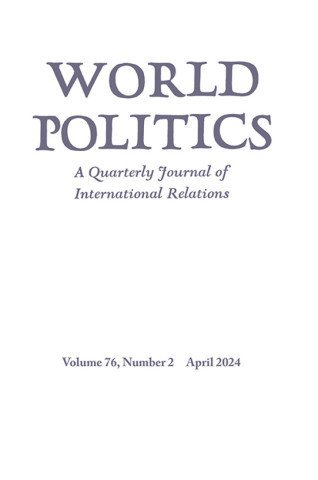The impact of economic sanctions on political and economic rights and the health of North Korean citizens
IF 2.5
1区 社会学
Q1 INTERNATIONAL RELATIONS
引用次数: 0
Abstract
Sanctions have become one of the important foreign policy tools of states against each other in recent years. While sanctions have not always achived the desired results. North Korea is among the countries that has experienced the longest bilateral and multilateral sanctions. The present study seeks to answer the question of how sanctions have affected the human rights situation in North Korea. In response to this question, the research hypothesis points out that international sanctions have violated the fundamental rights of North Korean citizens. The theoretical framework of research is based on Pekson and Cooper theory. Also, we used descriptive-analytical and documentary method. The results showed that with the start of North Korea's 2006 nuclear tests and the most severe sanctions ever imposed against it, the sanctions have had a direct and indirect impact on the human rights situation in North Korea. In the political arena, sanctions, rather than changing North Korea's behavior, have led to the authoritarian government, repression, violence and reduced freedoms. In the area of health, sanctions have led to a decline in public health levels, increased infant mortality, Spread of diseases, malnutrition, and difficult access to drugs and treatment. In the area of economy, sanctions have directly reduced the value of the national currency, people's income and food supply. It also caused inflation and corruption, which has contributed to greater poverty in north Korea.经济制裁对朝鲜公民政治和经济权利及健康的影响
近年来,制裁已成为各国相互对抗的重要外交政策工具之一。虽然制裁并不总是取得预期的结果。朝鲜是遭受双边和多边制裁时间最长的国家之一。本研究试图回答制裁如何影响朝鲜人权状况的问题。针对这一问题,研究假设指出,国际制裁侵犯了朝鲜公民的基本权利。研究的理论框架以Pekson和Cooper理论为基础。此外,我们还采用了描述分析法和文献法。结果表明,随着2006年朝鲜开始进行核试验和对其实施有史以来最严厉的制裁,制裁对朝鲜的人权状况产生了直接和间接的影响。在政治舞台上,制裁并没有改变朝鲜的行为,反而导致了独裁政府、镇压、暴力和自由的减少。在保健领域,制裁导致公共卫生水平下降、婴儿死亡率上升、疾病蔓延、营养不良以及难以获得药品和治疗。在经济领域,制裁直接降低了国家货币的价值、人民的收入和粮食供应。它还造成了通货膨胀和腐败,从而加剧了朝鲜的贫困。
本文章由计算机程序翻译,如有差异,请以英文原文为准。
求助全文
约1分钟内获得全文
求助全文
来源期刊

World Politics
Multiple-
CiteScore
8.40
自引率
0.00%
发文量
24
期刊介绍:
World Politics, founded in 1948, is an internationally renowned quarterly journal of political science published in both print and online versions. Open to contributions by scholars, World Politics invites submission of research articles that make theoretical and empirical contributions to the literature, review articles, and research notes bearing on problems in international relations and comparative politics. The journal does not publish articles on current affairs, policy pieces, or narratives of a journalistic nature. Articles submitted for consideration are unsolicited, except for review articles, which are usually commissioned. Published for the Princeton Institute for International and Regional Affairs
 求助内容:
求助内容: 应助结果提醒方式:
应助结果提醒方式:


